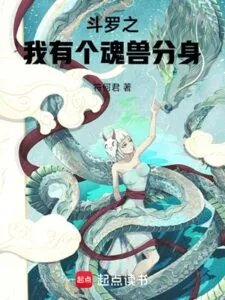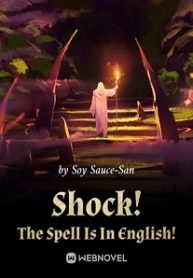Virtuous Sons: A Greco Roman Xianxia - Chapter 1.115 [Caesar's Edict]
Chapter 1.115 [Caesar’s Edict]
“A young maiden is foraging in the woods one blind night. She’s about your age, and, oh, about your size. With eyes and mind as pure as moonlight. She is too kind to hunt, you see, but her hunger won’t be sated by kindness. While she scraps and scuffles for whatever fruits the earth has left behind for her, she finds herself a wolf.
“Or, perhaps more likely, the wolf finds itself a maiden.
“It is a massive beast with cruel fangs and claws the length of knives. But those fangs are stained by wolf blood, and those claws are chipped and broken. There are arrows in its back. Though it has found itself a likely meal, it lacks the strength to secure it.
“The wolf is starving.”
The unwed, man-eating Amazons.
The title was an unkind one, and not at all uncommon in its sentiment. The warrior women of the Aegean’s eastern shores were an uncomfortable constant in the histories of the Free Mediterranean, dubbed horse-lovers and war-makers and king-slayers. Their vicious Queens and roving bands of war sisters were a recurring presence in the grand cycle of epics, a constant threat to the enlightened civilizations across the Aegean Sea.
Before the Conqueror discovered the greater mystery of the Scattered Foam Cult and forced his Pearl City upon the Free Mediterranean, the Amazon city of Nkri was considered the most foreign of the free polis by far. The Amazon city was reviled by its peers for much the same reason the Conqueror’s Alexandria was – the Amazons had discovered a greater mystery that was undeniable in its origins, and had entrenched themselves so deeply in the lands surrounding it that the effort needed to dislodge them would have ruined any one of their rivals. They refused to conform and made themselves impossible to deny, and they were hated for it.
The Blind Maiden Cult was named for reasons few men would ever find out, but it was an appropriate name regardless of the deeper mystery behind it. Whether or not the infamous hatred of men so often attributed to the Amazons was true or not, what could be proven was that they took no husbands and refused to suffer a king. They were a matriarchy in its purest sense.
Equal to any man in agility, strength, and stature even before the question of refinement was put forward, the Amazon was a looming presence on the eastern frontier of enlightened civilization. From the grasslands of Scythia to the sand dunes of Egypt, they had traveled and warred as much as any empire nation long before the Conqueror was born.
They tolerated men for one purpose, and one purpose alone.
Dual cultivation.
“The wolf stalks the young maiden. But she is only hungry, and it is wounded and starved. It can not catch her, no matter how it tries. She was never too slow to hunt, this girl, neither too weak nor too blind – only now and forever too kind. The maiden dances through the woods, always just outside the wolf’s reach.
“Eventually, its wounds and empty stomach bring it down for her. It lays dim-eyed in the dirt, panting and bleeding as the arrows do their work.
“Against all better judgment, the maiden turns back to it.”
Inside the temple of the Blind Maiden, where sisters of the Amazon faith come on dead moon nights to pay their respects and honor the natural phenomena that defines their journey, there is a shadowed grove containing two pools. In one pool is a potent poison, capable of killing all but the most resilient initiates in moments. In the other pool is the antidote.
Though the positions of the pools don’t change, their contents do. The questions of how and why are a portion of the mystery that confounds all who follow the Blind Maiden’s faith. The dichotomy is foundational.
Embedded in the shadows of the grove, carved into the bark of its trees and reflected on the surface of its pools, there are suggestions of the divinity that had once hunted and danced in the moon’s silver light. A hunter and a midwife. A poisoner and a physician – both the ailment and the cure.
No matter how much man reviles woman, and regardless of how much woman reviles man in turn, the fact remains that neither can exist without the other. Life springs from the two pools joined. The mingling of the father and the mother, this primordial exchange, is the first and most common basis for the phenomena known as dual cultivation. Though, of course, it is not the only one.
Dual cultivation is at every level an exchange. An exchange of the body’s fluid humors, and often, yes, the vital essences that blend to form a child. But beyond that, an exchange of the minds’ principles and higher ideals. An exchange of the hearts’ passions, its joys and sorrows alike. And of course, an exchange of the soul’s ravenous desires. It is called dual cultivation for a reason. It is more than just a lifegiving act.
It is more than just manifest desire. It is a form of refinement all its own.
However, while dual cultivation is by definition an exchange, it is not necessarily an equal exchange. The Amazon is known by many names, and few of them are kind. Her first and most venemously spoken title is Man-Eater.
It is not an inaccurate one.
“The maiden is hungry, and even in its sorry state the wolf is large enough to feed her for a month. But she is kind, too, and she fears the taking of a life.
“So although it snaps and claws when she reaches out to it, although it snarls at her soft words, she waits outside the wolf’s reach until it’s lost the energy to fight her. And then, while its dull eyes watch her, she tugs the arrows from its back and fills the rancid wounds with herbs and honey.
“The maiden is hungry, but she is kind, so she gives what little she has gathered to the wolf. It isn’t much. Hardly enough to be called a morsel – a handful of berries. It is enough.
“When she returns the next day with hunger in hand, the wolf is gone.”
Dual cultivation is, fittingly enough, a double-edged sword. It is possible to take more than is given, to drink deeply from the pool of another’s advancement and surrender only a drop from your own, but that is not necessarily a benefit.
The fruits of refinement are sweet, and at the same time they are bitter. A cultivator carries within themselves both the poison and the cure, and it is impossible to drink of one without also drinking of the other. It is all too easy to consume, to devour, when that first sweet drop of vitality touches the tongue. But it is just as easy to overindulge, and to succumb to what lurks deeper in the blood.
The Amazons of the Blind Maiden Cult, and the Amazons alone, have found the solution to this problem. They’ve found it in twin pools at a shadowed grove. One pool a poison, and one pool the cure.
When an Amazon has found herself a man worthy of giving her a daughter, she exchanges discourse of a deeper kind with him and drinks as deeply as she pleases. When the child has settled in her stomach and the fruits of her advancement have taken root in her soul, she returns to the temple of her ancestors and submerges herself in the pool of her choice.
Poison or panacea. In either case, the result is the same. The bitter impurities of man are purged, and what remains is the sweet fruit of the sister soul. It is no coincidence that the Amazons give birth to daughters and never sons. It is not by mistake that each generation of warrior women stands taller than the last, stronger and wilder than those that came before them.
It is blind design.
This is how the Amazons have advanced for centuries. Theirs is a pure line of true succession, each branch better than the one that came before it. It is the foundation they’ve built their cultural identity upon. It is only natural that their royal line of Queens would be the epitome of this sacred trend. It is to be expected that the Queen would stand tallest, strongest, and wildest of them all. It is demanded that her daughter be even more so than her.
For this reason, among others, the Amazon Queen is most selective of all her sisters when it comes to partners in dual cultivation. Hers is a line of blood so pure and strong that only a king’s essence will do. The father must surpass the grandfather if the daughter is to exceed her mother. It is a heavy expectation, and with every generation it grows heavier still.
By the time Queen Minythyia is ready to take on that daunting task herself, there is only one man in the world fit to spur her people forward. The Greeks won’t speak his name. Instead, they call him the Conqueror.
The Queen assembles three hundred sisters and travels to Verkana to visit the Conqueror in his camp. When she leaves thirteen days later, she is pregnant with a girl.
“Time passes. The maiden carries on with her kindness, foraging and finding just enough to remain hungry instead of starving. It is a precarious balance, and one day an illness upends it. Having never known abundance, she has no excess food to fall back on while bedridden. Without food to nourish her, the illness sinks its fangs into her and doesn’t let go.
“It is in that state, while she’s at the mercy of the world around her, that the wolf finds the maiden once again.”
Minythyia’s daughter is born healthy and whole, and she has all of her mother’s finest features. The pewter city of the Amazons celebrates for thirteen days and thirteen nights, declaring her Queen of Queens, blood of the Conqueror and Amazons combined.
Rumors and speculation as to her future abound through the city for years after her birth. The most popular prediction is that she’ll outstrip her mother by a foot’s length at the fullness of her height. Thirteen feet tall – one for every day it took to conceive her.
By the time Minythyia’s daughter turns thirteen, she is only five feet tall. At that same age the Queen had stood at nearly seven feet.
Every year the daughter doesn’t grow is another mark against the Queen. Every year another drop of poison. The prideful title given to her upon her birth, Queen of Queens, blood of the Conqueror, dwindles on the lips of her sisters until it falls entirely out of use. Until, years later, it returns as an insult. Queen of Queens, blood of the Conqueror. The words don’t change, but the intent behind them becomes an ugly thing.
When Minythyia’s daughter reaches the fullness of her natural growth, bolstered by all the treasures of the Amazons and their Blind Maiden Cult, she is only six feet tall.
The Queen of the Amazons stands taller than her sisters in all ways, and the expectations heaped upon her are heavier as a result. It is expected that her daughter will exceed her, because her daughter is the living symbol of the next generation. If the heiress stands taller, so too will the rest of the young blood.
But if nothing else, if nothing else at all, they have to stand as equals. If the daughter can’t stand eye-to-eye with the mother, then they will never progress as a people. They will never reclaim the glorious heights of the Amazonomachy. Never be themselves again outside of nightfire stories.
Minythyia’s daughter isn’t just inferior to her mother. She is inferior to her sisters in the Amazon city as well. In the crystalline pool of that pure and royal bloodline, she is undeniably other. A taint that cannot be ignored.
A single drop of poison.
When the Tyrant Riot comes to Nkri and claims the Queen as his due, it is almost a relief. The warrior sisters of ages past had fought tooth and nail every time that a man had dared to think himself equal to one of theirs. The Amazons had waged horrific, bloody war because a man had possessed the audacity to take one of their sisters from her home. But when the Tyrant Riot takes Minythyia in his hand, they turn their eyes away from her. They let him go.
She isn’t Minythyia, Queen of the Amazons, by that point. She hasn’t been for years. Her sisters have given her a new name behind their closed doors and in the silence of their shadowed groves, whispering just loud enough for her to hear them.
Thalestris. The Despoiler.
On his way out, dragging the Queen across the ground by her hair as if she wasn’t twice his size, the Tyrant Riot spots a young woman just shorter than himself and is struck by the shortness of her stature. He asks the Despoiled Queen who she is, and Thalestris spits out an answer.
“She is nothing. She is no one.”
The Tyrant Riot gives the young maiden a sympathetic glance.
“Mothers, eh?”
And then he’s gone, and the Despoiled Queen gone with him.
“The wolf stalks out of the woods just as it had all that time ago, but it is a different beast now. It is healthy and whole, its wounds healed and its hunger fed. It is strong. The maiden knows at once that she has no chance of escaping it. She doesn’t have the strength to stand anymore, let alone run. She’s ill, and she’s starving. She needs food.
“The wolf moves closer, and lo – there’s half a rabbit in its mouth.”
With her mother gone and only a single living heiress left behind, Queendom falls to Ivy.
Her aunts have other plans. They make a swift and punishing case against her – they bring a dozen standards to bear against her, and Ivy falls short on every single one. They levy her youth against her, her inexperience, her lack of wisdom and purpose. They turn her peers against her, which was a work half-done already. And in the end it is all unnecessary work, because the most important point was proven from the start.
The armor doesn’t fit her.
Thalestris’ older sister, eldest of the royals, assumes the role of Queen instead. She has three daughters already, and each of them is on their way to being greater than her – perhaps even greater than the Despoiler before her fall.
Ivy is allowed to retain her royal status, but she is an outsider in her own city. They treat her like she’s poison, because as far as they’re concerned she is, and every day that passes her heart grows a bit more poisonous to match their view of her. She comes to resent them. She almost comes to hate them. But in the end, her shame outweighs her resentment. No matter how much she tries to hate the strangers that are meant to be her sisters, she finds she only hates herself more.
It wasn’t her choice to be born this way, but that hardly changes things. The branch is still dead. The line of succession has been broken, and it was broken by her.
The man that gives Ivy a daughter is no king, but then, she’s no queen either. So long as her daughter can stand eye-to-eye with her, she’ll be content. Even if she can’t, Ivy promises the growing bump in her stomach that she’ll never be treated the way Ivy was by her own mother.
Even still, she can’t help but hope her daughter will be more than her. She can’t hope helping that she’ll stand above, and right the wrongs that Ivy’s existence has wrought on the branches of their line.
The Despoiler’s granddaughter is born happy and whole, with all her mother’s best features.
Her name is Anastasia.
Somewhere in the poison of her heart, Ivy finds a mother’s love for her daughter. She raises her daughter to be everything she could not be, to be even more than her grandmother was at her height, and when Anastasia stands eye-to-eye with her for the very first time she nearly bursts apart with pride. Even though she never grows beyond that, Ivy never loves her any less. She’s worth more than her grandmother and all her great aunts combined.
But in the end, even she is not able to cleanse Ivy of her resentment. Try as she might, the young physician never finds a cure to their shared affliction. And even if she did, it would only feed the true root of her mother’s poisonous resolve.
No matter what Thalestris may have said, and regardless of what her aunts had told her, Ivy desires Queendom. It is her impossible hunger. The ivory height that she strives for every day, no matter how far it might be from her reach. Every day she strains for the edges of her limits, and every day thereafter she strives to move beyond them. Every day she grows stronger. Every day she starves.
Until one day opportunity arrives – marching in cadence on her city, and flying the proud eagle standard of Rome.
“The maiden recognizes the wolf as the one she’d helped before, and then she sees the rabbit in its mouth. She mourns the small creature’s death, but she is so hungry that she can’t stop her mouth from watering at the sight of it. She realizes the wolf has come back to repay her kindness.”
The men of the Republic are unimpressive in stature, almost diminutive compared to the warrior women of Nkri, and for this reason the Queen takes their legions lightly.
It is a mistake.
The Romans fight like stubborn mules. They band together, each of them of a height with or shorter than their opponents in the Amazon city, and yet their strength together drives the sister bands into the ground. It is as baffling as it is terrifying. And even worse than that, they are informed.
They know of Ivy, and they seek her out. Though it was her intent to make use of them from the moment they came marching up from Egypt, it hardly feels at all like her plan when she joins the legion’s captain in his tent and is presented with an offer. A possible future.
Queen Ivy of the Amazons. Friend to the Republic.
The Romans divide, and they seek to conquer. It’s simply what they do. Ivy learns that lesson and many more in the months that follow. When she takes the field against her aunts for the very first time, to Roman chants of ‘Queen! Queen! Queen!’, the hatred they’ve felt for her all along comes roaring to the surface. Ivy isn’t surprised at all to see it.
Ivy is surprised when a portion of her sisters take her side.
As summer turns to fall, the legions wage a war of three kinds on the city of Nkri – they bleed them in the field with swords, spears, and shield walls. They starve them in their homes, surround their city and hunt down all calls for aid with trained eagles. And perhaps most effectively, they poison their hearts against their own sisters. Propaganda, the captain informs her one night in the shared comfort of his cot, is the purest poison of them all. Untraceable. Untreatable. And if applied properly, it only takes a drop to do its work.
A path to heaven presents itself to the Caustic Queens, a path forward for Ivy and her Anastasia. The Romans bleed Ivy’s aunts of their forces in three different ways, and every sister that defects to her banner is another point proven. It is another wrong made right. A balm to her soul.
When it becomes clear that the Romans will prevail, and her alongside them, Ivy offers Anastasia’s hand in marriage to the captain’s son. He is a strong young man, for a Roman, and they get along well enough. It is an unspeakable departure from tradition, but what’s one more after all of this?
Ivy takes the field the next day in the highest spirits since the day of her daughter’s birth. She meets the eyes of her third oldest aunt across the bloody fields that had once been idyllic forest groves and sees her victory in the woman’s hateful glare. She knows that victory will come soon. It might come today.
Amazon meets Amazon in a thunderous clash. The legions of Rome surge forward to bolster the Caustic Queen, certain of their success.
And then thunder roars above their heads, and lightning pries open the heavens.
“The ill maiden reaches gratefully for the gift of food the wolf has brought her – and cries out when the wolf tilts back its head and swallows the rest of the rabbit down.
“Why?” she asks, distraught. “Why did you come here if not to help me?”
“Then she sees the other wolves creeping in from all around her. And in that moment, before they tear her limb from limb, she understands something that she should have known from the beginning. An animal is an animal, and it was Actaeon’s own dogs that ate him in the end. Respect the wild predators of this earth, but do not ever trust them. Waste not your kindness on them.
“And never feed a starving wolf.”
“MY FELLOW SOLDIERS.”
The sound of it is deafening, truly deafening. Every syllable is a crack of rolling thunder, and the pressure alone sends Heroic Amazons staggering. Every mortal woman on the field without a fire burning in her eyes collapses to the ground, unable to hold her body up.
Ivy has fallen to one knee before she realizes what’s happened, and her aunt is no better off across from her. Both of their weapons lay forgotten in the dirt. Her aunt’s ears are bleeding. She realizes hers are as well. When Ivy casts her panicked gaze around, taking stock of her forces, she finds the men of Rome are not flat on their faces like she’d expected of them.
Every Roman soldier is standing at attention, right fist pressed to his chest, and they are all staring up at heaven.
It is a monstrous effort, but Ivy burns her heart’s blood and raises her head to follow their eyes.
“MY NAME IS GAIUS JULIUS CAESAR. HEAR ME NOW, AND KNOW THAT ROMA IS BETRAYED.”
A colossus of storm clouds and seething light in the shape of a man looms above the Amazon city of Nkri – no, it looms above the Roman legions fighting for control of the city. Narrow eyes of flashing lightning regard the men of the Republic with an intensity that strikes even the captain to his core. The man she’d seen turn her city inside out with such steady, maddening surety, stares up at heaven now with clenched teeth and a white-knuckled fist denting his breastplate.
“CARTHAGE IS RISEN FROM THE ASHES. THERE ARE KNIVES LURKING IN THE DARK. NO PROVINCE IS SAFE, NO LEGION STRONG ENOUGH ALONE. NIGHT HAS FALLEN ON THE CITY OF ROME.”
Another deafening roar of thunder batters her ears, this time rising from the earth as the Roman legionaries howl their disbelief and outrage.
The storm cloud colossus bares its teeth in furious empathy, its lightning eyes flashing, and raises a titanic hand. Ivy sees tendrils of what look like ink wheeling between the fingers – crows. From this distance, there have to be thousands of them. Thousands upon thousands of cawing crows.
“GO,” the colossal specter of Gaius Julius Caesar commands, and its storm cloud hand clenches into a fist like it’s gripping the skies above.
Like it’s searching for a gap.
A sound comes that is not noise, but a pure lightning sensation that starts from the base of her spine and branches out to the tips of her fingers and burns their nails black. Ivy watches in silent horror alongside her aunt as a jagged line appears in the skies above, pried open by Caesar’s fist.
“SEEK SAFER SHORES.”
The Tyrant of the West tears a hole in the skies above, and the legions of Rome fall up into it like the axis of the world itself have shifted.
While they plummet up, screaming and thrashing futilely against Caesar’s will, the colossus addresses them one last time.
“DRIVE THE TRAITORS FROM YOUR RANKS. STAND READY WHEN THE CAPTAIN CALLS. KNOW THAT GAIUS JULIUS CAESAR’S WILL HAS CAST YOU OUT, AND BY THAT SAME WILL RECLAIMED YOU.”
The storm cloud colossus smiles grimly.
“STAND PROUD, AND KNOW THE SUN OF ROME WILL RISE-”
From the blackened skies surrounding it, a hundred blades of searing lightning runs Caesar’s apparition through.
With a sound like the heavens and earth themselves screaming out in agony, the stormcloud colossus bursts apart in a final mad cacophony of thunder and light. In the next instant, the gaping wound in the skies above slams shut and takes the Roman soldiers with it. The soldiers, their camp followers, their siegeworks and beasts of war. Everything vanishes into the skies above. Everything but a single eagle standard, planted firmly in the ground where the captain had last stood.
For a short and endless eternity, not a single Amazon moves.
When Ivy turns and runs for her daughter, her aunt makes no move to stop her.
“My little Ivy, you seem upset. Is that not how you thought this story would end?”














